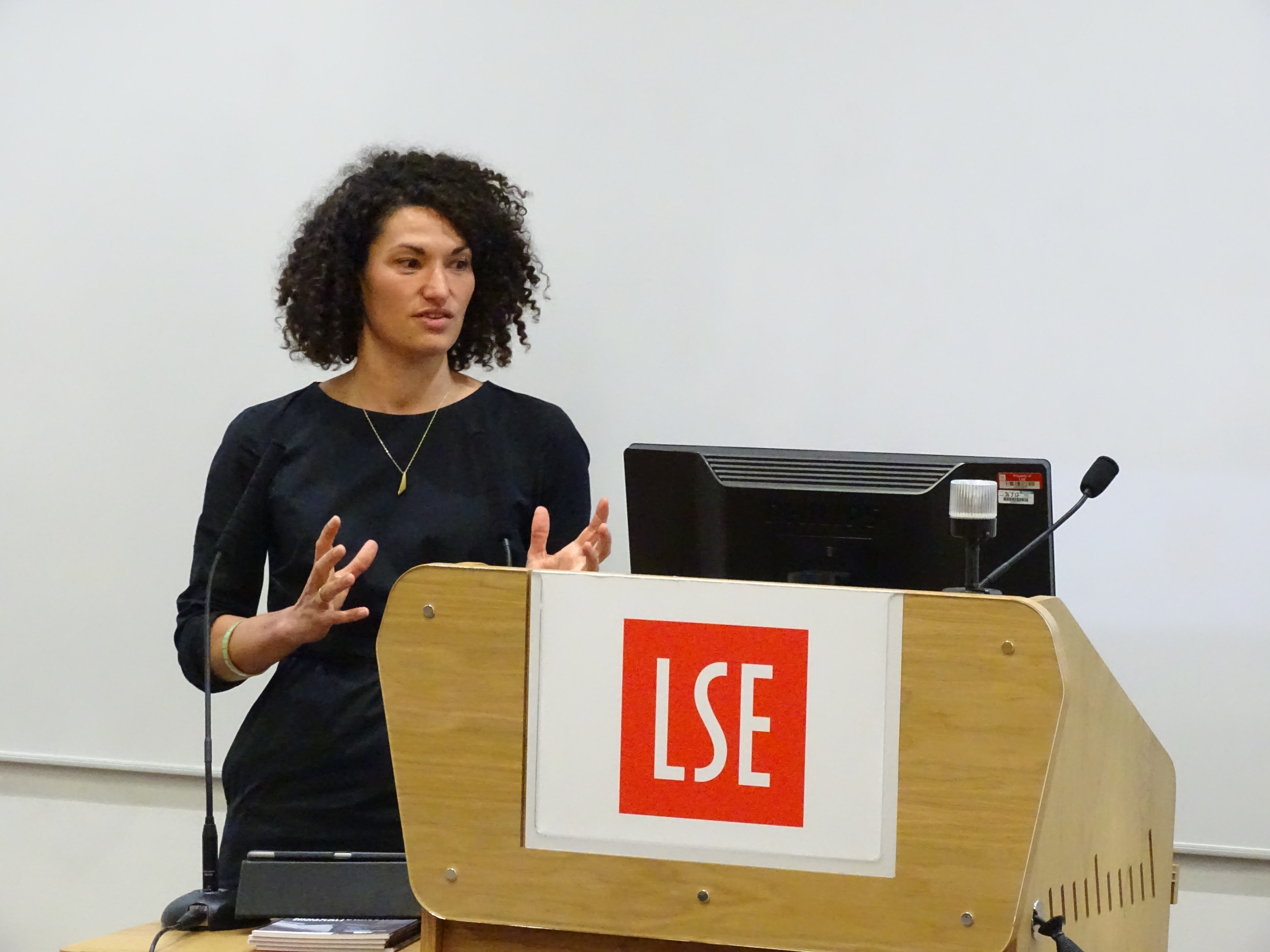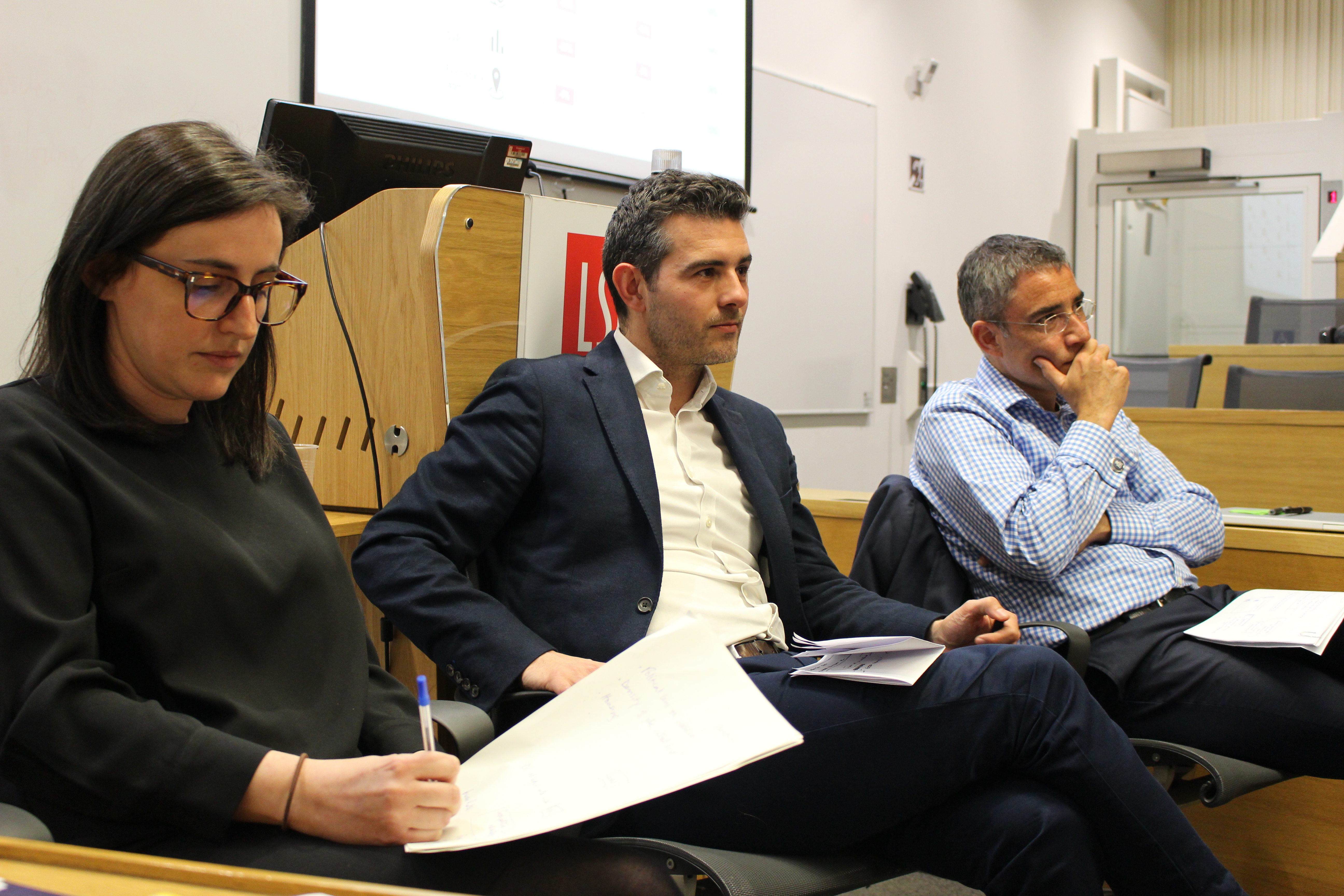The semester’s second London Talk centred around the pressing issue of how to address homelessness in London. Professor Christine Whitehead, the evening’s host, framed the discussion by stating that the foremost issue with homelessness is that many don’t know how it is defined. The evening’s presenters were Bert Provan, a senior policy fellow and social researcher at the LSE, Mark Baigent, an independent consultant advising local authorities on estate renewal and innovative house building, and Patrick Mulrenan, a senior lecturer in community development and leadership at the London Metropolitan University.
As the evening’s first speaker, Bert Provan (powerpoint available here) talked about what homelessness is, what its causes are, and what can be done about it. The statutory definition of homelessness is a household which has no available or reasonable home in either the UK or abroad. This not only includes rough sleepers, but also those in temporary accommodation or inadequate housing. Speaking on the causes of homelessness, Bert dispelled the myth that everyone is two pay checks away from homelessness. Instead, those at risk are those who experience poverty, especially childhood poverty, and lack social network. Other key causes are lack of house building and that government benefits don’t adequately covers rent. As to how to solve homelessness there is wide disagreement. Some argue for giving out homes, while others say that this will leave the homeless abandoned. There are also those who say that anything that can be done, such as soup kitchens, should be done. However, some are concerned that such actions will only encourage people to live in the streets.
The second presentation, delivered by Mark Baigent, provided the local authority perspective. Every borough has a legal obligation to investigate each person claiming to either be homeless or risk becoming so. This requires resources and trained staff to carry out. LSE research has found that these costs have only increased since the 2018 legislation and has not been matched with greater funding from the government. Another issue is that time spent in temporary accommodation has gone up for London’s 55,000 households which local authorities have a statutory duty to help, many of which have children. This lack of security has devastating effects on their health and well-being. Mark considers homelessness to be a symptom of a broken housing market. Social and affordable housing is simply not keeping up with demand, forcing people to wait longer in temporary accommodation. He concluded by stating that what is needed to help alleviate homelessness is greater cross-council collaboration and for more local social and affordable housing to be built.
The final speaker was Patrick Mulrenan (powerpoint available here), whose remarks centred on the human aspect of homelessness. His presentation was based on a study he had conducted a couple of years ago, looking into student homelessness. Using in-depth interviews and a focus group he and a group of researchers sought to further understand the nature and extent of this problem. He was told heartfelt stories about the poor living conditions students had to endure, many while caring for their children. This severely impacted their studies and posed a significant burden for them. Even so, many keep silent about their status out of shame. Patrick found that what kept them at university can be summarised with four F’s: Family Pride, Fortitude, Faith, and Friends. He concluded by saying that we need to gain a better understanding of the scope of student homelessness in order to help them. We also need to focus on key relationships in order to maintain resilience, focusing student engagement on current students.
Following the presentations, the audience were invited to engage. Topics covered ranged from the role that lack of information plays in fuelling homelessness, how personal housing plans can help students, to whether the Mayor should take a more active role. Mark reiterated the need for more resources and training to identify those at risk of homelessness early on. On a similar note, Patrick spoke of the need for mentors who can help homeless people secure appropriate help. Bert also highlighted this need by noting that many people, once they are moved into housing, lack the capacity to take care of themselves.
The evening concluded with each speaker presenting their final points. Patrick spoke of the need to regulate the Right to Buy in order to reduce the loss of appropriate housing. Mark addressed the urgency for a national training programme to ensure competent social workers and skilled and available house builders. Finally, Bert stated that the policy that would do the most good would be some form of rent cap. This would make housing more secure and affordable to a larger portion of the population. With that, the audience was invited to join the next London Talk on December 4th which will address density in London.





